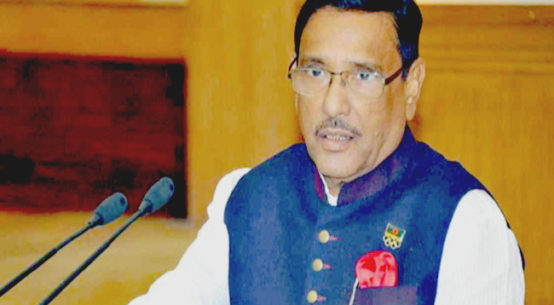People of an island in the south-eastern district of Cox’s Bazar are suffering from huge crisis of drinking water since Cyclone Mocha cuts its path through the coast on Sunday.
Mocha dealt a heavy blow to the fishing community of Shah Porir Dwip where 95 percent of homes were damaged. The storm flattened trees and snapped electric cables.
About 500 families walk about 2 kilometres for water to drink. Many repair houses in desperate circumstances.
Abdus Salam, a member of the union council at Shah Porir Dwip Ward No. 9, said around 400 bamboo huts and 200 tin-roofed houses were severely damaged.
“The worst crisis is that of drinking water after the cyclone. And the houses are without electricity,” he said.
Cyclone Mocha, one of the strongest storms to hit the region in years, made landfall on the Bangladesh-Myanmar coast on Sunday.
Cyclone Mocha is gone. Now an island in Cox’s Bazar reels from outages and a water crisis
Bangladesh is facing its worst power cuts in over seven months as the storm forced the closure of both its floating LNG terminals, less than a month after a scorching heatwave caused widespread outages, Reuters reports.
Natural gas accounts for over half of Bangladesh’s annual power output, and the energy-hungry nation is increasingly exposed to price and supply-related shocks, as its domestic gas reserves have dwindled rapidly over the past few years.
Abu Sayeed, a resident of the Jaliapara neighbourhood, said salt water was already an issue with the drinking water and a small number of deep tube wells in the area was the lifeline to the families.
Before the cyclone struck the island, people used pumps to bring water home from tube wells through pipes across a distance of 2-3 kilometres.
Now with the electricity supply cut off to the island, pumps stopped working, leaving many families without drinking water for days.
Cyclone Mocha is gone. Now an island in Cox’s Bazar reels from outages and a water crisis
The young people were carrying the water into the locality with the adults busy with the house repairs.
Nur Kayes, a young man living precariously on an embankment with his family, was seen carrying a pitcher of water. Their small house was blown away by the cyclone. As his parents were busy repairing the home, he has been carrying water for the family for the last two days.
Teknaf Rural Electrification Zone’s DGM Abul Bashar Azad said Cyclone Mocha uprooted 14 electrical poles and ripped away connection cables.
“Several of our teams are working in the area. We are trying to fix the problem. We are hoping that the power will be restored in a couple of days.”
In Bangladesh, power supply was about 17% short of demand on Monday while the deficit was more than 14% on Sunday, Reuters said citing data from Bangladesh’s grid operator. The worst shortages were witnessed after midnight, the data showed.
Bangladesh’s Summit LNG terminal, which resumed operations late on Monday, will boost supplies by two-thirds to 500 million standard cubic feet per day or MMcfd on Tuesday, the chairman of its national gas company said.
Bangladesh’s other floating LNG unit, the Moheshkhali LNG terminal, will resume operations “in the next few days”, Petrobangla Chairman Zanendra Nath Sarker told Reuters. The Moheshkhali LNG terminal is operated by Excelerate Energy.
The resumption of supply from the terminals is expected to provide a respite from power cuts, before temperatures start soaring in the latter half of the peak summer month of May, potentially further straining the grid.
Three LNG vessels shipped in by Petrobangla due to arrive this week have been delayed due to inclement weather, Sarker said. The first vessel will arrive on May 18 instead of May 13. Two others which had been due on May 16 and May 20 have been delayed, he said, without providing more details.


